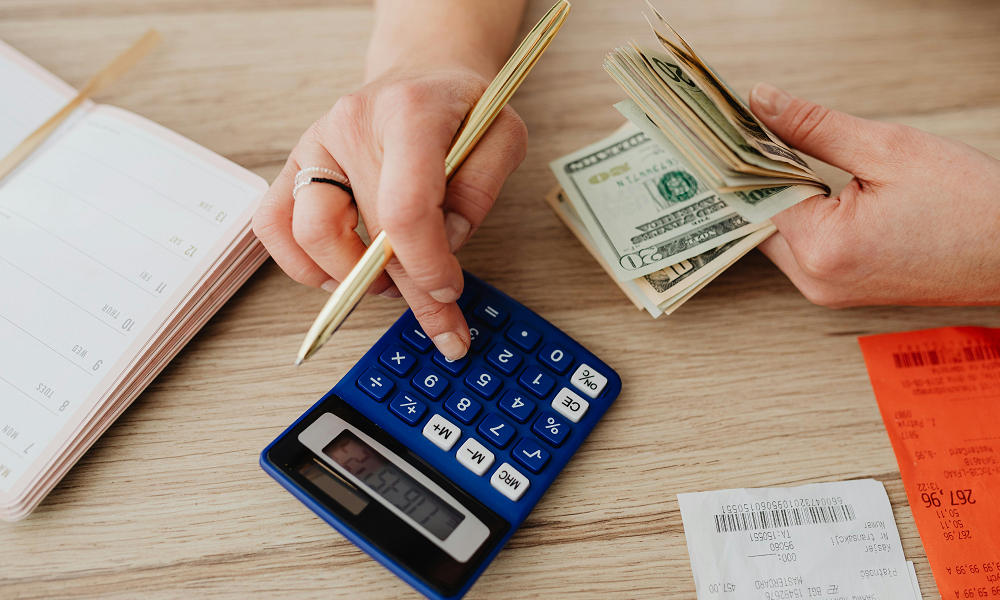Reviews
How To Control Your Spending for a Financially Safe Future

Taking control of your spending can feel like a daunting task. Between life’s endless expenses and tempting splurges, it’s easy to see why so many of us feel like our wallets are in charge—not the other way around. But here’s the good news: with a few practical steps, you can start managing your money more mindfully and work toward a financially safe future. Let’s dive into how you can shift from a spender to a saver without feeling deprived.
Start with a Snapshot of Your Spending Habits
To get a handle on your spending, first, you need to know exactly where your money is going. Think of this step as taking a quick snapshot of your finances. Pull out your bank statements, receipts, or even just scroll through your transactions in your banking app. Are there areas that surprise you? Maybe those daily coffee runs add up more than you thought, or perhaps a few subscriptions have slipped under the radar.
Tracking your spending is eye-opening. It’s like holding up a mirror to your financial habits, showing you patterns you may not have noticed before. For a little extra help, try using a budgeting app or just jotting everything down in a notebook for a month. Once you know where your money goes, it’s easier to make decisions about where it should go.
Set Goals That Excite You
Now that you’ve got the facts, it’s time to set some goals. And not just any goals—ones that actually get you excited. Maybe you’re aiming to buy your first home, or you’re saving for a dream vacation. Whatever it is, make sure it feels personal and motivating.
Having clear goals gives purpose to your spending and saving. When you’re faced with a spending decision, think back to these goals. Knowing that each dollar is bringing you one step closer to something important makes it easier to say “no” to things that aren’t.
Build a Budget That Fits Your Life
Budgeting doesn’t have to mean spreadsheets and sacrifices. Instead, think of a budget as a plan that helps you do more of what you actually care about. Start by setting a realistic monthly budget based on your income and essential expenses, like rent, groceries, and bills. Then, set aside a portion for savings and a portion for fun—yes, fun! The goal is balance, not restriction.
You could break it down like this: 50% for essentials, 20% for savings, and 30% for things you enjoy. This structure (often called the 50/20/30 rule) is just a guideline, but it can help you stay on track without feeling like you’re missing out. Remember, a good budget is one that fits your life, not one that crams you into a box.
Learn to Separate Needs from Wants
Distinguishing between needs and wants sounds simple, but it’s often trickier than it seems. Here’s the trick: when you’re about to buy something, ask yourself, “Do I need this, or do I want this?” Needs are things you truly can’t go without, like groceries and utilities. Wants are the extras, like a new gadget or another pair of shoes when you already have plenty.
Now, it’s okay to buy things you want—everyone needs a little indulgence now and then. But if your goal is to build a financially safe future, knowing when to hold back is key. Practicing this distinction makes it easier to enjoy what you buy without regret or guilt.
Use Cash or Debit for Extras
Credit cards are convenient, but they can also make it way too easy to overspend. Consider using cash or debit for your discretionary purchases—the “fun stuff” that’s easy to go overboard on. When you’re paying with cash, you physically see the money leaving your hand, which makes it a bit harder to part with. This tangible limit can be a helpful reminder to stick to your budget.
If cash isn’t your thing, setting a weekly or monthly spending limit on your debit card works too. The goal is to make your discretionary spending feel more real and help you pause before you splurge.
Save Like You Mean It
Saving can sometimes feel like a chore, but it doesn’t have to. By setting up automatic transfers into a savings account, you can make saving a part of your routine—no extra effort needed. This could be as simple as setting up an automatic transfer of $50 each month to a savings account or using apps that “round up” your purchases and save the spare change.
Building an emergency fund is also crucial for financial safety. This is your safety net, and it can save you from debt if unexpected expenses pop up. Start small if you need to; the important part is creating a habit of setting aside money for a rainy day.
Watch Out for Lifestyle Inflation
Ever notice how expenses seem to rise whenever your income does? This phenomenon, known as lifestyle inflation, is the silent enemy of financial security. When we start earning more, it’s tempting to upgrade our lifestyle—fancier dinners, nicer clothes, maybe even a bigger home.
But here’s a tip: every time you get a raise, try to keep your lifestyle the same for a while. Put that extra income into savings or towards a goal instead. This doesn’t mean you can’t enjoy your money; it just means staying mindful of the habits that will serve you best in the long run.
Review and Adjust Regularly
Your financial needs and goals will change over time, and that’s perfectly normal. Make a habit of checking in on your budget and spending every few months. Did anything major come up that’s affecting your finances? Are there any new goals you want to save for? Adjust as needed.
A quarterly review can help keep your spending in check and ensure your money is still working for you. Plus, it’s a great way to celebrate your progress—seeing how much closer you’ve come to your goals can be a real motivator to keep going.
Small Changes, Big Impact
Controlling your spending isn’t about cutting out everything you enjoy. It’s about finding a balance that allows you to live well today and feel secure about tomorrow. By making small changes and sticking to the basics, you can create habits that help you build a financially safe future.
So go ahead—take that first step, and before you know it, you’ll see the difference. Financial security might be closer than you think!

-

 World6 days ago
World6 days agoEthiopian volcano erupts for first time in thousands of years
-

 Legal3 days ago
Legal3 days agoUtah Amber Alert: Jessika Francisco abducted by sex offender in Ogden
-

 US News2 days ago
US News2 days agoExplosion destroys home in Oakland, Maine; at least 1 injured
-

 Health3 days ago
Health3 days agoMexico’s September human bird flu case confirmed as H5N2
-

 Legal1 week ago
Legal1 week agoSuspect in San Diego stabbing shot by authorities after fleeing into Mexico
-

 Health1 week ago
Health1 week agoMarburg virus outbreak in Ethiopia grows to 6 confirmed cases
-

 World1 week ago
World1 week agoU.S. sanctions companies and vessels accused of aiding Iranian military oil sales
-

 World3 days ago
World3 days agoWoman killed, man seriously injured in shark attack on Australia’s NSW coast



